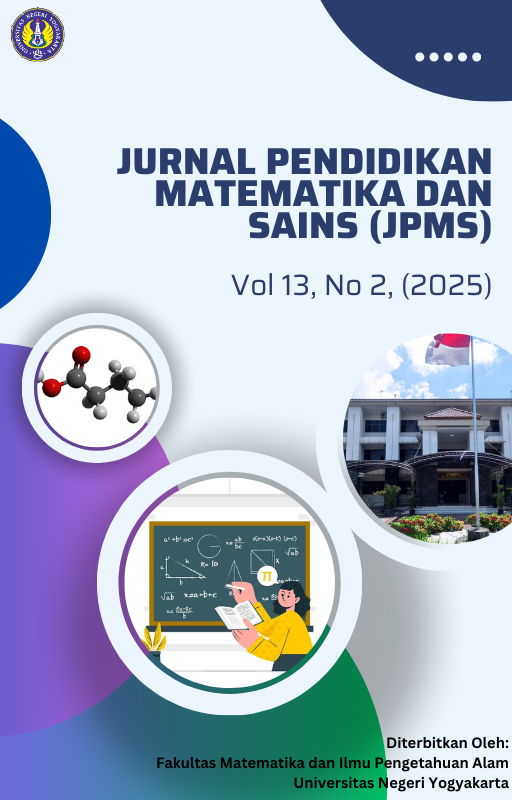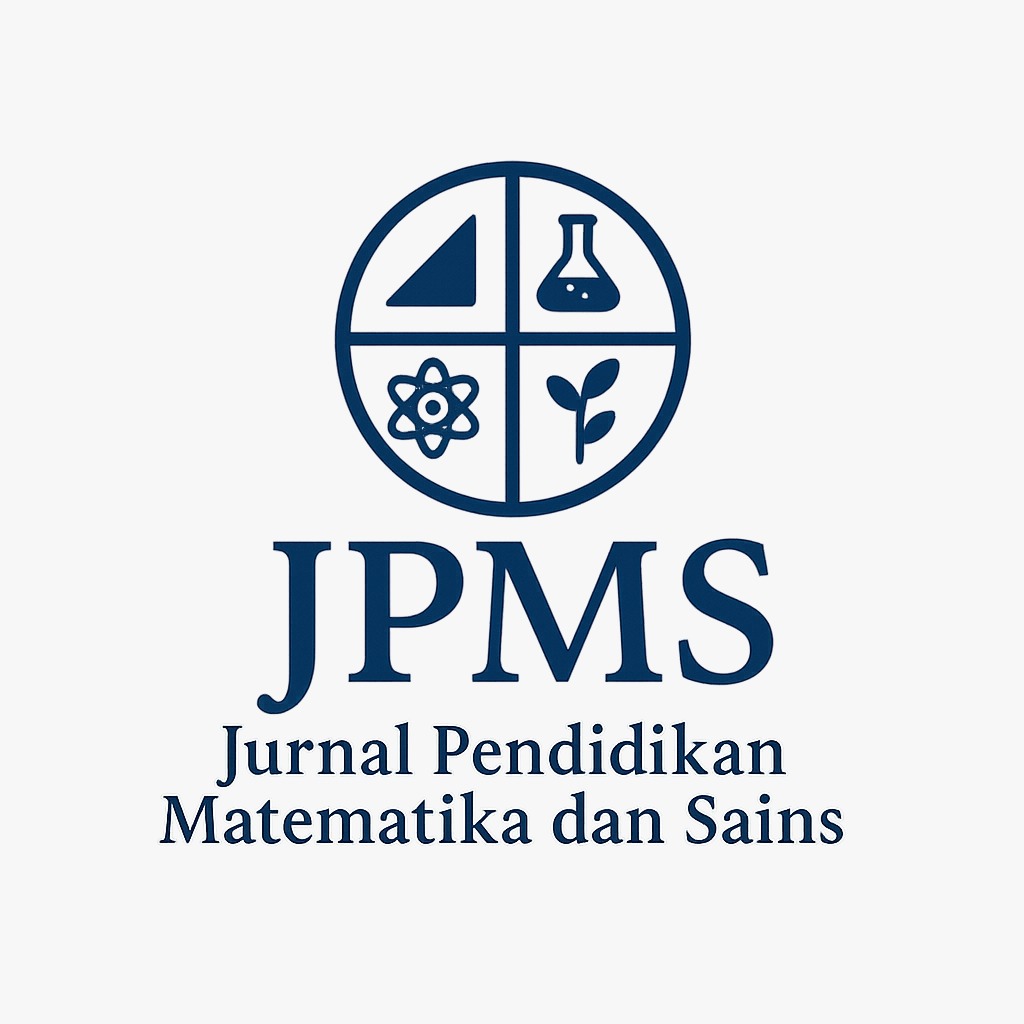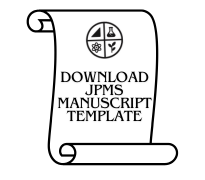Exploring Research Trends and Future Works of Process-oriented Guided Inquiry Learning in Organic Chemistry: A Bibliometric Study
DOI:
https://doi.org/10.21831/jpms.v13i2.83513Keywords:
Bibliometric analysis, Organic chemistry, POGIL, PRISMA, VOSviewerAbstract
This study aimed to investigate research trends and future works concerning the implementation of the Process Oriented Guided Inquiry Learning (POGIL) approach in organic chemistry learning. Employing the PRISMA protocol for systematic literature review and bibliometric analysis using VOSviewer software, the researchers identified and analyzed 97 relevant journal articles indexed in the Scopus database. The analysis revealed an upward trend in POGIL-related publications since 2016, with a significant concentration in the United States and in chemistry education journals. Key thematic clusters emerged around cognitive and affective learning domains such as engagement, academic achievement, reasoning, teamwork, and self-efficacy, indicating the predominance of student student-centered and active learning practices in POGIL implementations. However, the study found limited exploration of knowledge retention, misconceptions remediation, anxiety management, and the integration of digital learning tools in POGIL-based organic chemistry learning. The study concluded that POGIL holds strong potential for enhancing curriculum design and learning outcomes in chemistry education. It implied that future research should explore under-investigated areas, including the integration of appropriate technological innovations, to optimize the impact of POGIL on student learning in organic chemistry.
References
Abdullah, & Naved Khan, M. (2021). Determining mobile payment adoption: A systematic literature search and bibliometric analysis. Cogent Business and Management, 8(1). https://doi.org/10.1080/23311975.2021.1893245
Allen, J. B. (1986). Guided inquiry laboratory. Journal of Chemical Education, 63(6), 533–534. https://doi.org/10.1021/ed063p533
Bailey, C. P., Minderhout, V., & Loertscher, J. (2012). Learning transferable skills in large lecture halls: Implementing a POGIL approach in biochemistry. Biochemistry and Molecular Biology Education, 40(1), 1 – 7. https://doi.org/10.1002/bmb.20556
Beatty, A. E., Esco, A., Curtiss, A. B. C., & Ballen, C. J. (2022). Students who prefer face-to-face tests outperform their online peers in organic chemistry. Chemistry Education Research and Practice, 23(2), 464–474. https://doi.org/10.1039/D1RP00324K
Beck, J. P., & Miller, D. M. (2022). Encouraging Student Engagement by Using a POGIL Framework for a Gas-Phase IR Physical Chemistry Laboratory Experiment. Journal of Chemical Education, 99(12), 4079–4084. https://doi.org/10.1021/acs.jchemed.2c00314
Birzina, R., Cedere, D., & Petersone, L. (2019). Factors influencing the first year students’ adaptation to natural science studies in higher education. Journal of Baltic Science Education, 18(3), 349–361. https://doi.org/10.33225/jbse/19.18.349
Cancino, C. A., Merigó, J. M., & Coronado, F. C. (2017). A bibliometric analysis of leading universities in innovation research. Journal of Innovation and Knowledge, 2(3), 106–124. https://doi.org/10.1016/j.jik.2017.03.006
Casey, J. R., Supriya, K., Shaked, S., Caram, J. R., Russell, A., & Courey, A. J. (2023). Participation in a High-Structure General Chemistry Course Increases Student Sense of Belonging and Persistence to Organic Chemistry. Journal of Chemical Education, 100(8), 2860–2872. https://doi.org/10.1021/acs.jchemed.2c01253
Chase, A., Pakhira, D., & Stains, M. (2013). Implementing process-oriented, guided-inquiry learning for the first time: Adaptations and short-term impacts on students’ attitude and performance. Journal of Chemical Education, 90(4), 409 – 416. https://doi.org/10.1021/ed300181t
Conway, C. J. (2014). Effects of guided inquiry versus lecture instruction on final grade distribution in a one-semester organic and biochemistry course. Journal of Chemical Education, 91(4), 480–483. https://doi.org/10.1021/ed300137z
Donthu, N., Kumar, S., Mukherjee, D., Pandey, N., & Lim, W. M. (2021). How to conduct a bibliometric analysis: An overview and guidelines. Journal of Business Research, 133, 285–296. https://doi.org/https://doi.org/10.1016/j.jbusres.2021.04.070
Doughan, S., & Shahmuradyan, A. (2022). Introducing Second Year Analytical Chemistry Students to Research through Experimental Design in the Undergraduate Teaching Laboratory. Journal of Chemical Education, 99(12), 4001–4007. https://doi.org/10.1021/acs.jchemed.2c00248
Ellegaard, O., & Wallin, J. A. (2015). The bibliometric analysis of scholarly production: How great is the impact? Scientometrics, 105(3), 1809–1831. https://doi.org/10.1007/s11192-015-1645-z
Ellinger, J. (2019). Reflection on the Use of Process Oriented Guided Inquiry Learning in Science-focused English Classes. 3, 29–40.
Esen, M., Bellibas, M. S., & Gumus, S. (2020). The Evolution of Leadership Research in Higher Education for Two Decades (1995-2014): A Bibliometric and Content Analysis. International Journal of Leadership in Education, 23(3), 259–273. https://doi.org/10.1080/13603124.2018.1508753
Farrell, J. J., Moog, R. S., & Spencer, J. N. (1999). A Guided Inquiry General Chemistry Course. Journal of Chemical Education, 76(2–4), 570–574. https://doi.org/10.1021/ed076p570
Fateh, S., Kirbulut Gunes, Z. D., Malone, A., Cote, G., Phelps, A. J., Porter, R. N., & Rushton, G. T. (2024). Bridging the Gap: Examining Student Engagement in a Hybrid POGIL General Chemistry Class. Journal of Chemical Education, 101(12), 5147–5159. https://doi.org/10.1021/acs.jchemed.3c00791
Gaviria-Marin, M., Merigo, J. M., & Popa, S. (2018). Twenty years of the Journal of Knowledge Management: a bibliometric analysis. Journal of Knowledge Management, 22(8), 1655–1687. https://doi.org/10.1108/JKM-10-2017-0497
Gemmel, P. M., Goetz, M. K., James, N. M., Jesse, K. A., & Ratliff, B. J. (2020). Collaborative Learning in Chemistry: Impact of COVID-19. Journal of Chemical Education, 97(9), 2899–2904. https://doi.org/10.1021/acs.jchemed.0c00713
Gulacar, O., Vernoy, B., Tran, E., Wu, A., Huie, E. Z., Santos, E. V., Wadhwa, A., Sathe, R., & Milkey, A. (2022). Investigating Differences in Experts’ Chemistry Knowledge Structures and Comparing Them to Those of General Chemistry Students. Journal of Chemical Education, 99(8), 2950–2963. https://doi.org/10.1021/acs.jchemed.2c00251
Gülmez, D., Özteke, İ., & Gümüş, S. (2021). Overview of Educational Research from Turkey Published in International Journals: A Bibliometric Analysis. Egitim ve Bilim, 46(206), 213–239. https://doi.org/10.15390/EB.2020.9317
Heberger, A. E., Christie, C. A., & Alkin, M. C. (2010). A bibliometric analysis of the academic influences of and on evaluation theorists’ published works. American Journal of Evaluation, 31(1), 24–44. https://doi.org/10.1177/1098214009354120
Howley, I. (2020). Adapting guided inquiry learning worksheets for emergency remote learning. Information and Learning Science, 121(7–8), 549–557. https://doi.org/10.1108/ILS-04-2020-0086
Huang, C., Yang, C., Wang, S., Wu, W., Su, J., & Liang, C. (2020). Evolution of topics in education research: a systematic review using bibliometric analysis. Educational Review, 72(3), 281–297. https://doi.org/10.1080/00131911.2019.1566212
Hunnicutt, S. S., Grushow, A., & Whitnell, R. (2015). Guided-Inquiry Experiments for Physical Chemistry: The POGIL-PCL Model. Journal of Chemical Education, 92(2), 262–268. https://doi.org/10.1021/ed5003916
Hunter, K. H., Rodriguez, J.-M. G., & Becker, N. M. (2021). Making sense of sensemaking: using the sensemaking epistemic game to investigate student discourse during a collaborative gas law activity. Chemistry Education Research and Practice, 22(2), 328–346. https://doi.org/10.1039/D0RP00290A
Jegstad, K. M. (2023). Inquiry-based chemistry education: a systematic review. Studies in Science Education, 1–63. https://doi.org/10.1080/03057267.2023.2248436
Joshi, N., & Lau, S.-K. (2023). Effects of process-oriented guided inquiry learning on approaches to learning, long-term performance, and online learning outcomes. Interactive Learning Environments, 31(5), 3112–3127. https://doi.org/10.1080/10494820.2021.1919718
Koron, J., Gallant, S., & Spiess, P. (2023). Statistical Analysis in a Longitudinal Study of the Implementation of Process Oriented Guided Inquiry Learning at Norwich University. Journal of Chemical Education, 100(9), 3194–3199. https://doi.org/10.1021/acs.jchemed.2c00934
Kusumasari, T. F., & Fitria. (2016). Data profiling for data quality improvement with OpenRefine. 2016 International Conference on Information Technology Systems and Innovation (ICITSI), 1–6. https://doi.org/10.1109/ICITSI.2016.7858197
Latimer, D. R., Ata, A., Forfar, C. P., Kadhim, M., McElrea, A., & Sales, R. (2018). Overcoming the Hurdle from Undergraduate Lab to Research Lab: A Guided-Inquiry Structural Characterization of a Complex Mixture in the Upper-Division Undergraduate Organic Lab. Journal of Chemical Education, 95(11), 2046–2049. https://doi.org/10.1021/acs.jchemed.7b00421
Li, L., Li, Y., Pei, J., Wu, Y., Wang, G., Zhang, J., Liu, J., & Tian, G. (2023). Hotspots and trends of electrochemical biosensor technology: a bibliometric analysis from 2003 to 2023. RSC Advances, 13(44), 30704–30717. https://doi.org/10.1039/d3ra05889a
Liandi, A. R., Cahyana, A. H., Alfariza, D. N., Nuraini, R., Sari, R. W., & Wendari, T. P. (2024). Spirooxindoles: Recent report of green synthesis approach. Green Synthesis and Catalysis, 5(1), 1–13. https://doi.org/10.1016/j.gresc.2023.08.001
Mascarenhas, C., Ferreira, J. J., & Marques, C. (2018). University–industry cooperation: A systematic literature review and research agenda. Science and Public Policy, 45(5), 708–718. https://doi.org/10.1093/scipol/scy003
Mengist, W., Soromessa, T., & Legese, G. (2020). Method for conducting systematic literature review and meta-analysis for environmental science research. MethodsX, 7, 100777. https://doi.org/10.1016/j.mex.2019.100777
Moher, D., Liberati, A., Tetzlaff, J., & Altman, D. G. (2010). Preferred reporting items for systematic reviews and meta-analyses: The PRISMA statement. International Journal of Surgery, 8(5), 336–341. https://doi.org/10.1016/j.ijsu.2010.02.007
Moog, R. S., Creegan, F. J., Hanson, D. M., Spencer, J. N., & Straumanis, A. R. (2006). Process-Oriented Guided Inquiry Learning: POGIL and the POGIL Project. Metropolitan Universities, 17(4), 41–52.
Moon, A., Stanford, C., Cole, R., & Towns, M. (2017). Decentering: A Characteristic of Effective Student-Student Discourse in Inquiry-Oriented Physical Chemistry Classrooms. Journal of Chemical Education, 94(7), 829 – 836. https://doi.org/10.1021/acs.jchemed.6b00856
Murray, T. A. (2014). Teaching students to read the primary literature using pogil activities. Biochemistry and Molecular Biology Education, 42(2), 165 – 173. https://doi.org/10.1002/bmb.20765
Nasrudin, D., Setiawan*, A., Rusdiana, D., & Liliasari, L. (2023). Research Trends and Future Works on Student Creativity in the Context of Sustainability: A Bibliometric Analysis. Jurnal Pendidikan Sains Indonesia, 11(4), 926–936. https://doi.org/10.24815/jpsi.v11i4.33393
Nennig, H. T., States, N. E., Macrie-Shuck, M., Fateh, S., Gunes, Z. D. K., Cole, R., Rushton, G. T., Shah, L., & Talanquer, V. (2023). Exploring social and cognitive engagement in small groups through a community of learners (CoL) lens. Chemistry Education Research and Practice, 24(3), 1077–1099. https://doi.org/10.1039/D3RP00071K
Nosek, B. A., Graham, J., Lindner, N. M., Kesebir, S., Hawkins, C. B., Hahn, C., Schmidt, K., Motyl, M., Joy-Gaba, J., Frazier, R., & Tenney, E. R. (2010). Cumulative and Career-Stage Citation Impact of Social-Personality Psychology Programs and Their Members. Personality and Social Psychology Bulletin, 36(10), 1283–1300. https://doi.org/10.1177/0146167210378111
Öztürk, O., Kocaman, R., & Kanbach, D. K. (2024). How to design bibliometric research: an overview and a framework proposal. Review of Managerial Science, 0123456789. https://doi.org/10.1007/s11846-024-00738-0
Page, M. J., McKenzie, J. E., Bossuyt, P., Boutron, I., Hoffmann, T. C., Mulrow, C. D., Shamseer, L., Tetzlaff, J. M., Akl, E., Brennan, S. E., Chou, R., Glanville, J., Grimshaw, J. M., Hróbjartsson, A., Lalu, M. M., Li, T., Loder, E. W., Mayo-Wilson, E., McDonald, S., … Moher, D. (2021). The prisma 2020 statement: An updated guideline for reporting systematic reviews. Medicina Fluminensis, 57(4), 444–465. https://doi.org/10.21860/medflum2021_264903
Patino, C. M., & Ferreira, J. C. (2018). Inclusion and exclusion criteria in research studies: definitions and why they matter. Jornal Brasileiro de Pneumologia, 44(2), 84–84. https://doi.org/10.1590/s1806-37562018000000088
Prince, A. N., Pitts, W. B., & Parkin, D. W. (2018). Exploring Power Distribution and Its Influence on the Process of Argumentation in a POGIL Biochemistry Classroom. Journal of College Science Teaching, 47(4), 92–107. https://doi.org/10.2505/4/jcst18_047_04_92
Qureshi, S., Vishnumolakala, V. R., Southam, D. C., & Treagust, D. F. (2017). Inquiry-Based Chemistry Education in a High-Context Culture: a Qatari Case Study. International Journal of Science and Mathematics Education, 15(6), 1017–1038. https://doi.org/10.1007/s10763-016-9735-9
Reynders, G., & Ruder, S. M. (2020). Moving a Large-Lecture Organic POGIL Classroom to an Online Setting. Journal of Chemical Education, 97(9), 3182–3187. https://doi.org/10.1021/acs.jchemed.0c00615
Rodriguez, J.-M. G., Hunter, K. H., Scharlott, L. J., & Becker, N. M. (2020). A Review of Research on Process Oriented Guided Inquiry Learning: Implications for Research and Practice. Journal of Chemical Education, 97(10), 3506–3520. https://doi.org/10.1021/acs.jchemed.0c00355
Rosadi, I., & Sunarno, W. (2018). The Effectiveness of Process-Oriented Guided Inquiry Learning to Improve Students’ Analytical Thinking Skills on Excretory System Topic. Biosaintifika, 10(3), 684–690. https://doi.org/10.15294/biosaintifika.v10i3.15990
Rumain, B., & Geliebter, A. (2020). A Process-Oriented Guided-Inquiry Learning (POGIL)-Based Curriculum for the Experimental Psychology Laboratory. Psychology Learning and Teaching, 19(2), 194 – 206. https://doi.org/10.1177/1475725720905973
Sarker, R., Roknuzzaman, A. S. M., Hossain, M. J., Bhuiyan, M. A., & Islam, M. R. (2023). The WHO declares COVID-19 is no longer a public health emergency of international concern: benefits, challenges, and necessary precautions to come back to normal life. International Journal of Surgery (London, England), 109(9), 2851–2852. https://doi.org/10.1097/JS9.0000000000000513
Schmidt-Mccormack, J. A., Fish, C., Falke, A., Lantz, J., & Cole, R. S. (2019). Assessment of Process Skills in Analytical Chemistry Student Responses to Open-Ended Exam Questions. Journal of Chemical Education, 96(8), 1578 – 1590. https://doi.org/10.1021/acs.jchemed.8b00877
Schneider, J. L., Ruder, S. M., & Bauer, C. F. (2018). Student perceptions of immediate feedback testing in student centered chemistry classes. Chemistry Education Research and Practice, 19(2), 442–451. https://doi.org/10.1039/C7RP00183E
Schroeder, J. D., & Greenbowe, T. J. (2008). Implementing POGIL in the lecture and the Science Writing Heuristic in the laboratory—student perceptions and performance in undergraduate organic chemistry. Chem. Educ. Res. Pract., 9(2), 149–156. https://doi.org/10.1039/B806231P
Şen, Ş. (2024). Process oriented guided inquiry learning: A systematic review using bibliometric analysis. Biochemistry and Molecular Biology Education, 52(2), 188–197. https://doi.org/10.1002/bmb.21803
Shvindina, H. (2019). Coopetition as an emerging trend in research: Perspectives for safety & security. Safety, 5(3). https://doi.org/10.3390/safety5030061
Simonson, S. R. (2019). POGIL: An Introduction to Process Oriented Guided Inquiry Learning for Those Who Wish to Empower Learners. Routledge.
Singleton, S. M., Teague, C. M., & Salter, C. (2022). The Hydrogen Atom Spectrum: Experimental Analysis Using Iterative Model Building. Journal of Chemical Education, 99(12), 4143–4148. https://doi.org/10.1021/acs.jchemed.2c00348
Song, P., & Wang, X. (2020). A bibliometric analysis of worldwide educational artificial intelligence research development in recent twenty years. Asia Pacific Education Review, 21(3), 473–486. https://doi.org/10.1007/s12564-020-09640-2
Song, Y., Chen, X., Hao, T., Liu, Z., & Lan, Z. (2019). Exploring two decades of research on classroom dialogue by using bibliometric analysis. Computers & Education, 137, 12–31. https://doi.org/https://doi.org/10.1016/j.compedu.2019.04.002
Stegall, S. L., Grushow, A., Whitnell, R., & Hunnicutt, S. S. (2016). Evaluating the effectiveness of POGIL-PCL workshops. Chemistry Education Research and Practice, 17(2), 407–416. https://doi.org/10.1039/C5RP00225G
Vincent-Ruz, P., Meyer, T., Roe, S. G., & Schunn, C. D. (2020). Short-Term and Long-Term Effects of POGIL in a Large-Enrollment General Chemistry Course. Journal of Chemical Education, 97(5), 1228–1238. https://doi.org/10.1021/acs.jchemed.9b01052
Walker, L., & Warfa, A.-R. M. (2017). Process oriented guided inquiry learning (POGIL®) marginally effects student achievement measures but substantially increases the odds of passing a course. PLoS ONE, 12(10). https://doi.org/10.1371/journal.pone.0186203
Wei, T., Liu, W., Zheng, Z., Chen, Y., Shen, M., & Li, C. (2022). Bibliometric Analysis of Research Trends on 3-Monochloropropane-1,2-Diol Esters in Foods. Journal of Agricultural and Food Chemistry, 70(49), 15347–15359. https://doi.org/10.1021/acs.jafc.2c06067
Downloads
Published
How to Cite
Issue
Section
Citation Check
License
Copyright (c) 2025 Jurnal Pendidikan Matematika dan Sains

This work is licensed under a Creative Commons Attribution-ShareAlike 4.0 International License.
Jurnal Pendidikan Matematika dan Sains allows readers to read, download, copy, distribute, print, search, or link to its articles' full texts and allows readers to use them for any other lawful purpose. The journal allows the author(s) to hold the copyright without restrictions. Finally, the journal allows the author(s) to retain publishing rights without restrictions
- Authors are allowed to archive their submitted article in an open access repository
- Authors are allowed to archive the final published article in an open access repository with an acknowledgment of its initial publication in this journal

This work is licensed under a Creative Commons Attribution-ShareAlike 4.0 Generic License.





